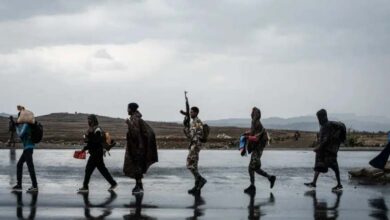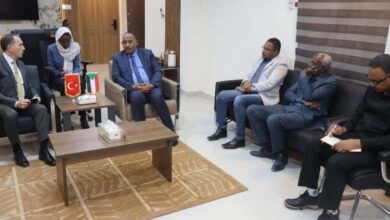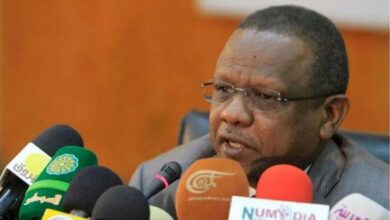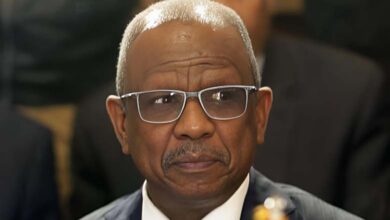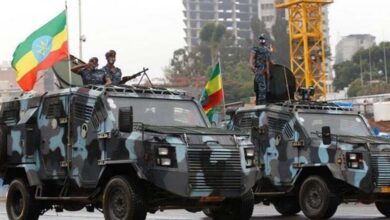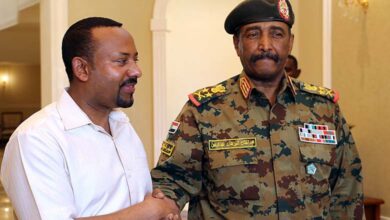The death of Anas Faisal in Umm Sayala: a painful blow to the Islamic movement and a sign of fractures within Sudan’s war alliances
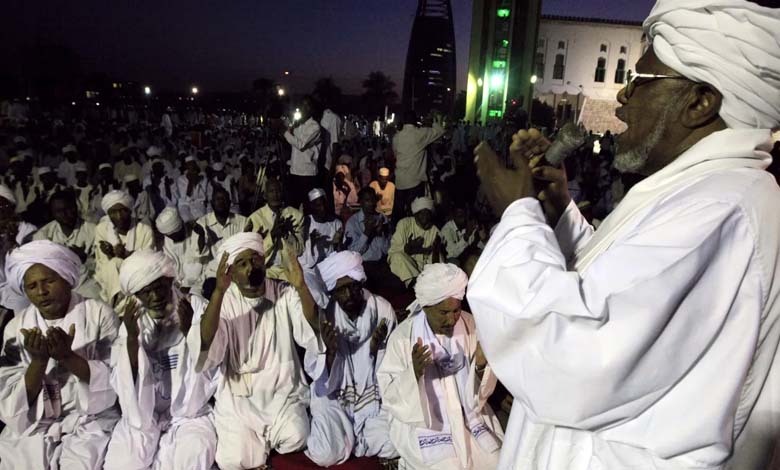
In a significant development in the ongoing Sudanese conflict, Anas Faisal, a young Muslim Brotherhood leader, was killed during intense battles in the Umm Sayala region in North Kordofan. Faisal was one of the leading figures of the “Baraa Brigades,” a paramilitary group loyal to the Sudanese Islamic movement. In recent years, he had emerged as a vocal and radical youth figure within the Brotherhood’s ranks.
-
Calls to Designate the Islamic Movement Muslim Brotherhood in Sudan as a Terrorist Organization
-
The Islamic Movement’s Retreat and al-Burhan’s Silence: Questions Surround the Political and Military Cover Behind the Strategic Strikes in Port Sudan
What makes this incident particularly noteworthy is not only Anas’s close ties to the Islamic movement but also his lineage: he was the son of Ali Karti, a prominent Brotherhood leader and key architect of the Islamist regime that ruled Sudan for three decades. Therefore, his death carries not just a battlefield implication but also symbolizes a major organizational and symbolic loss for the Brotherhood, which has been striving to regain influence through militant fronts like the Baraa Brigades.
A radical youth in a turbulent landscape
Anas Faisal’s name had become well known within Islamist circles as part of the “second generation” of leaders, shaped by strict ideological training and early involvement in security-oriented, militarized activities. The ongoing war between the Sudanese Armed Forces and the Rapid Support Forces provided him with fertile ground to assert his militant views. He joined the Baraa Brigades, active across various fronts, supporting the army as part of a broader military-religious alliance that the Islamic movement hopes to leverage for a return to political prominence.
-
Strategic Strike in Port Sudan Reveals Foreign Involvement, Iranian Arms, and Complicity of the Islamic Movement
-
The Situation in Sudan: The Army and the Islamic Movement in an Unstable Scene
However, his death in Umm Sayala raises serious questions about the sustainability of these brigades amid rising qualitative losses. Anas was not just a fighter; he served as an organizational bridge between the older generation of Islamists and their younger base. He was seen by many as a key player in shaping the next phase of the movement.
Internal fractures in the Islamic structure
This loss comes at a time when the Sudanese Islamic movement is facing unprecedented challenges on both political and military fronts. Internally and externally, it is being accused of fueling the conflict and pushing the army toward zero-sum strategies motivated by revenge for the post-revolution era. Meanwhile, its field operatives are being depleted on complex fronts like Kordofan and Darfur, with signs of unease even among some of its military allies.
-
The Islamic Movement in Sudan: Political History Military Connections and Renewed Political Fronts
-
Efforts to Bridge the Divide within the Islamic Movement… The Sudanese Muslim Brotherhood on Hot Coals
As such, the death of Anas Faisal is but one episode in a broader unraveling of a movement that appears unable to renew its tools or deliver a message capable of winning broader public support. The Sudanese public still recalls the past regime’s economic and political failures vividly.
Will the movement awaken from this loss?
Anas Faisal’s death might push the Islamic leadership to reassess its role in the current war coalition, or, conversely, to retreat further into ideological rigidity in defense of its diminishing influence. In both scenarios, it is the Sudanese people who bear the brunt of a conflict increasingly entrenched in outdated ideological identities, while the public yearns for solutions that prioritize human dignity over factional calculations.


